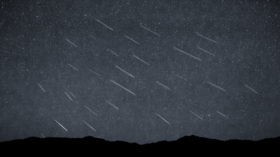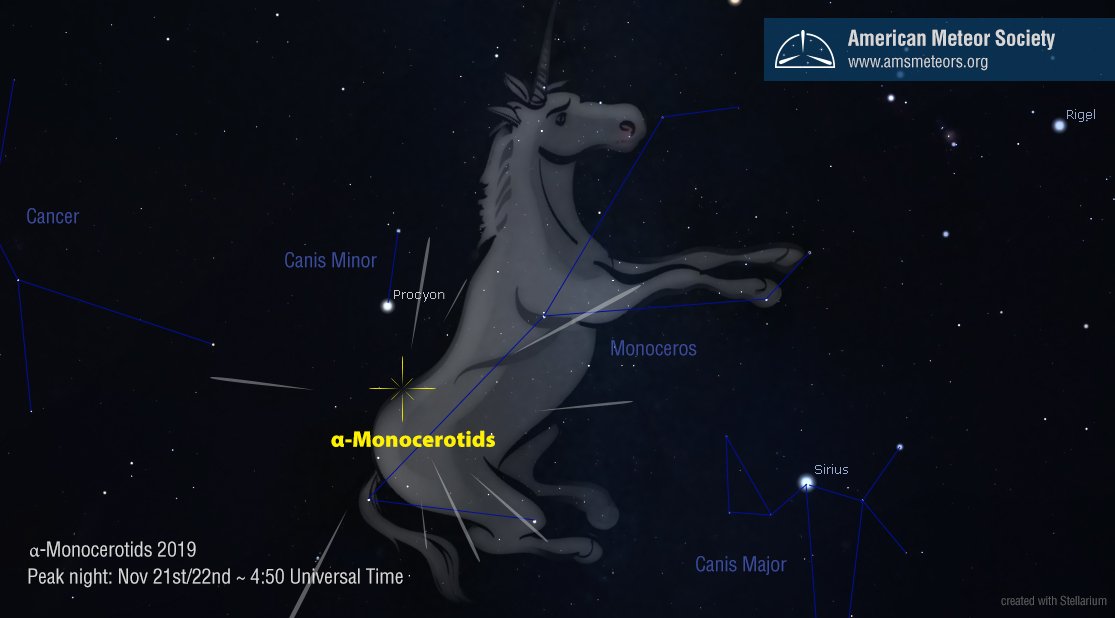Rare ‘unicorn’ meteor shower set to be sparked by mysterious comet

Two leading meteor scientists are forecasting that a rare outburst from the alpha Monocertoid meteor will treat stargazers to a flurry of shooting stars this week. Here’s what you need to know about the looming light show.
Hundreds of meteors are set to light up the night sky for a brief spell, when the spectacular show kicks off at 04:50 Universal Time on Friday. The meteors will rain out of Monoceros, the Unicorn constellation, near Orion the Hunter, and they will be caused by debris from the tail of a mysterious unknown comet burning up in Earth’s atmosphere.

As well as being rare, the dazzling display is also exceptional because it’s only set to last 15 to 40 minutes. The waning moon will cause only minor interference and the best views will be in western Europe, eastern North America, South America and northwestern Africa.
The alpha Monocertoid meteor shower takes place every year but it usually only produces a handful of meteors. However, on rare occasions it has put on stunning outbursts that have wowed sky watchers.
Also on rt.com Leonid meteor shower lights up night sky with spectacular shooting starsAstronomers Esko Lyytinen and Peter Jenniskens have forecast in MeteorNews that we’re in for a treat this year. The large outbursts previously occurred in 1925, 1935, 1985 and 1995.
During the 1995 outburst, the hourly rate of meteors hit around 400, and scientists are predicting that this week’s show will produce something similar, with more than a handful of meteors blazing across the sky every minute.
The astronomers recommend that people begin observing the sky an hour before the predicted time, in case the shower begins early. No telescopes or equipment are required to see the shower, but people are being advised to wrap up in warm clothes and avoid looking at their phones to allow their eyes to adjust to the night sky.
Also on rt.com Mystery surrounds curious SPACE FIREBALLS that crashed in Chile as experts rule out meteor shower (PHOTOS)Like this story? Share it with a friend!














